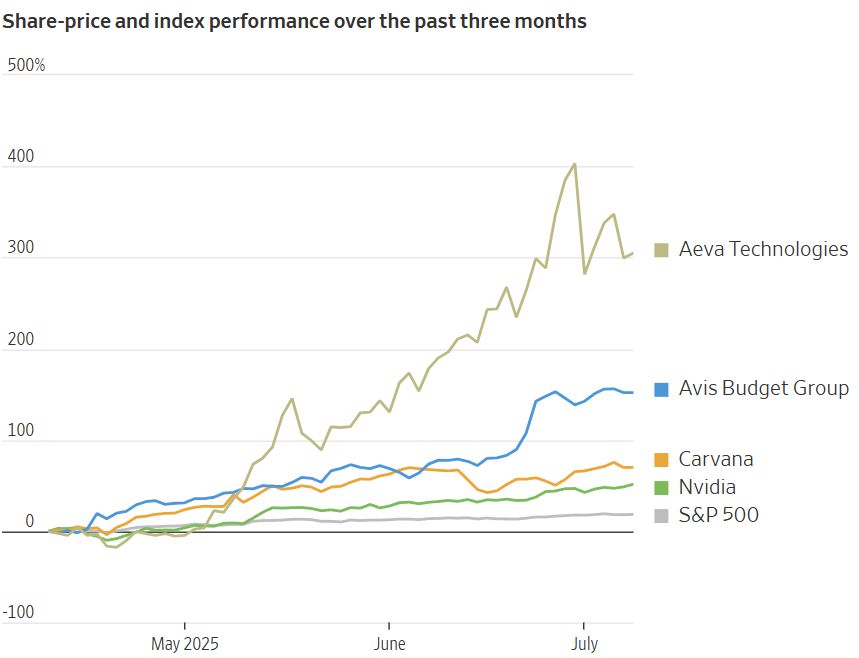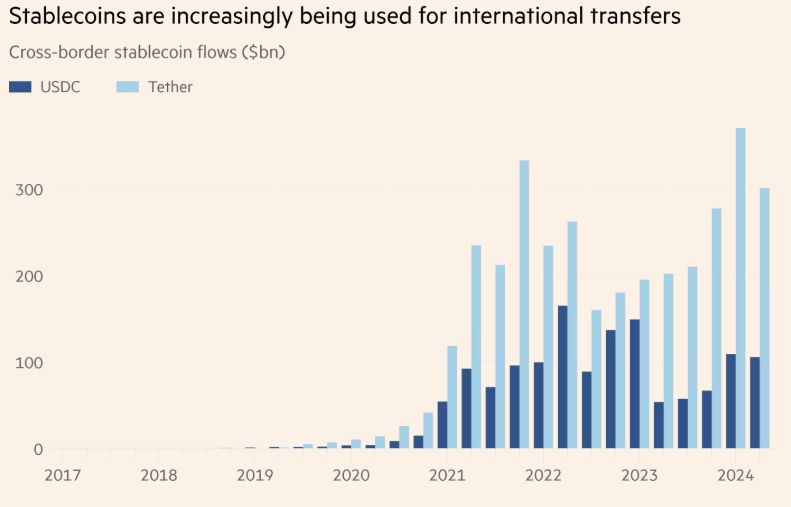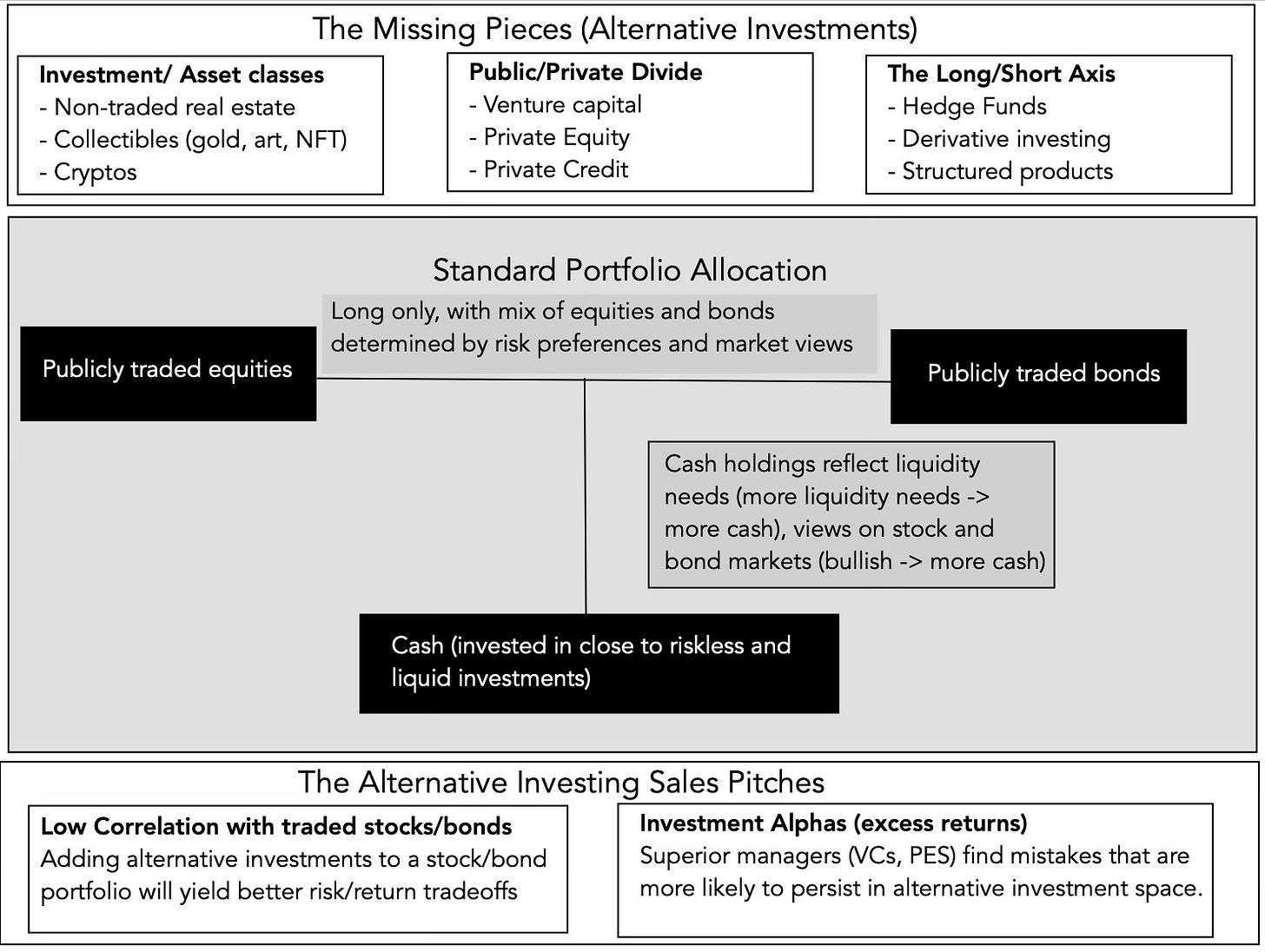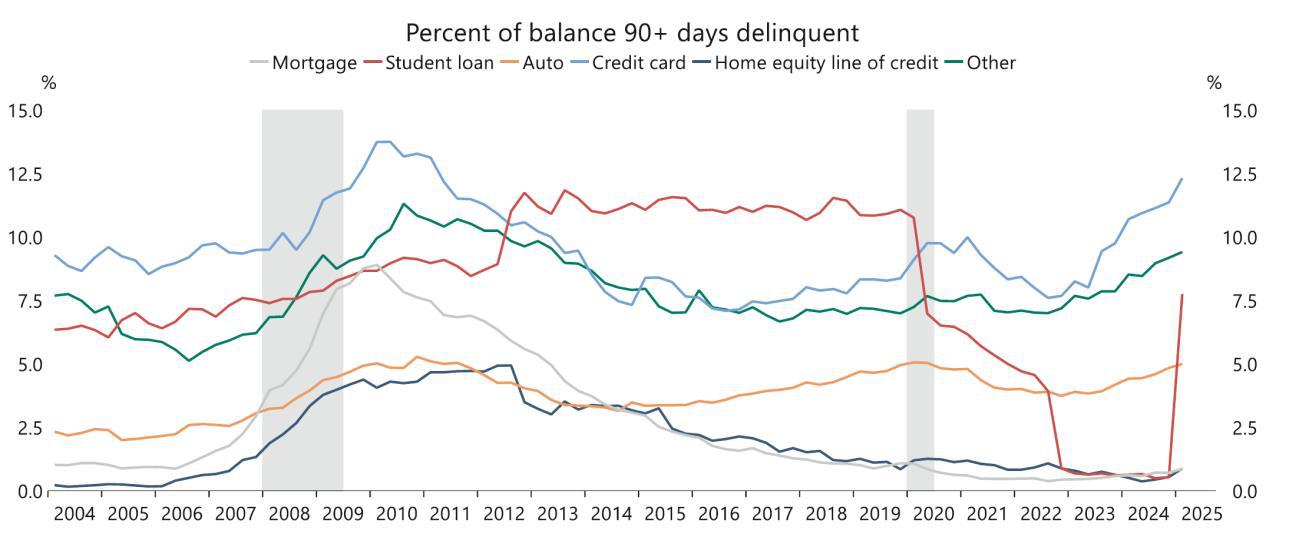Weekly Reads
A space where we share a selection of thought-provoking content that we've recently come across.
Meme stocks and YOLO bets are back and fueling the market’s rally
It’s 2021 all over again. Since April 8 stock market bottom—post-Liberation Day—the 858 stocksin the Russell 3000 Index with no earnings have since posted average gains of 36%,outperforming their profitable peers. A Goldman Sachs index that tracks retail traders’ favoritestocks just set its first record since November 2021—the peak of the last speculative frenzybefore interest rates began to increase. Historically, such elevated levels of market frenzieshave been followed by more difficult moments. As Warren Buffet says, “Only when the tide goesout do you discover who's been swimming naked.”

A cheeky pint with Meta CFO Susa Li
In an interview with Stripe co-founder John Collison, Susan Li gives us some insight into howMeta evaluates bets and ROI. Meta categorizes investments into those that can be measured,like core family of apps, and those that are more complex, like Reality Labs. For the latter theyinvert the problem, asking what the business needs to be worth to justify the investment,essentially performing a reverse DCF. Susan goes on to say that “we are very good atskeptically evaluating each bet”. Giving investors confidence that they are not treating theselong-term bets like hobbies. Susan champions free cash flow over EBITDA, emphasizing thatfor a capital-intensive business, focusing on free cash flow is crucial as it accounts fordepreciation and capex. Li discusses capex trends as well in the AI era and AI’s impact onproductivity, Li believes AI will initially make humans substantially more productive.

Stablecoins perform ‘poorly as money’, central bank warns
Central banks are sounding the alarm on stablecoins, with the Bank for InternationalSettlements (BIS) delivering a scathing assessment that they "perform badly" on key requirements for widely used money. Despite US President Donald Trump's push to integratethem into mainstream finance , the BIS argues that stablecoins fail three crucial tests: they lackcentral bank backing, have insufficient safeguards against illicit use, and lack the fundingflexibility needed for loan generation. With approximately $250 billion in circulation , concernsare mounting over their anonymity making them a conduit for criminal activity, including moneylaundering and drug trafficking, and the risk of rapid investor withdrawals. The BIS warnsagainst the "limitations of unsound money," advocating instead for a next-generation monetarysystem built on trusted foundations.

Alternative investments: big promises, questionable payoffs
The Illusion of Diversification? This Substack pulls back the curtain on alternative investments—private equity, venture capital, and hedge funds—and asks whether the returns justify the hype.Since 2009, private equity’s return premium has eroded, with recent CFA and Cambridgestudies showing no consistent outperformance after fees or risk adjustments. And yet allocators continue to pour capital into high-fee, low-liquidity products. The message: in a world awashwith storytelling, the burden of proof belongs to the product—not the pitch.

The pause on reporting delinquent federal student loans has ended: implicationsfor consumer spending
The end of the pause on reporting delinquent federal student loans is poised to create asignificant headwind for consumer spending, according to a recent Apollo analysis. With 45million Americans holding federal student loans, and 24% of those obligated to pay alreadydelinquent, approximately 11 million consumers could face declining credit scores. This drop in creditworthiness is expected to restrict access to new borrowing for major purchases like carsand appliances, thereby slowing overall consumer spending. The student loan delinquency ratehas already jumped significantly in recent months, notably seeing a 10-percentage-pointincrease in borrowers 90+ days past due between February 2020 and February 2025.


